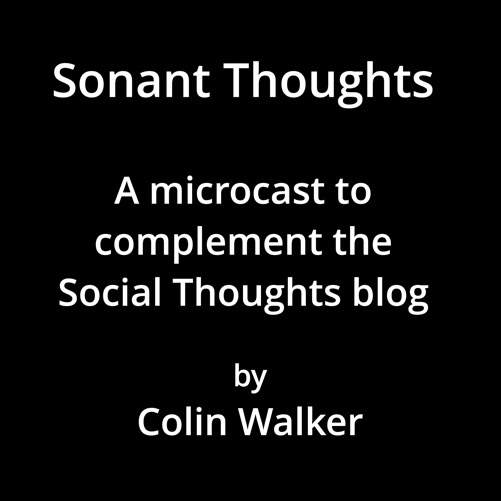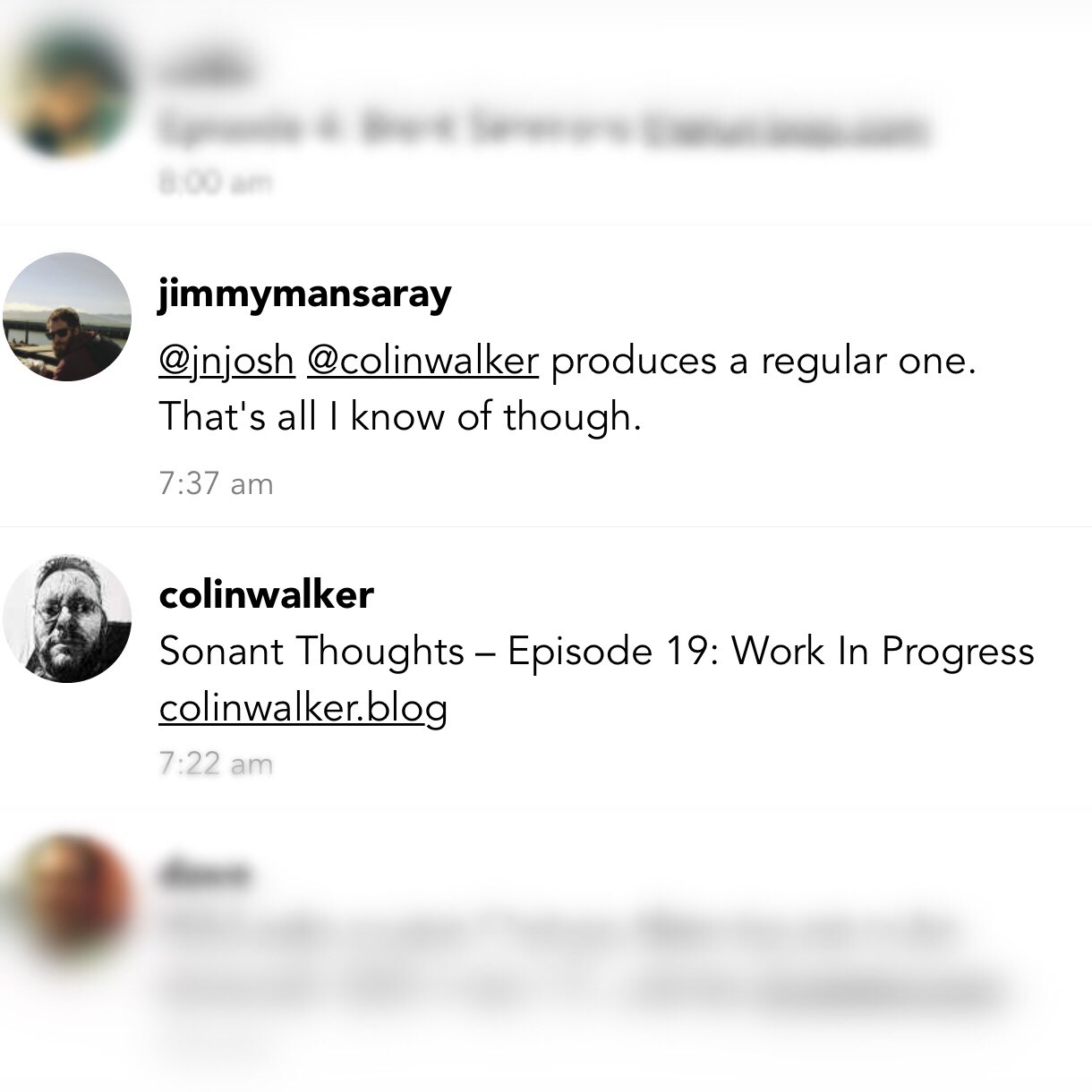Sonant Thoughts - Episode 19: Work In Progress
Thoughts on influence, change and how nothing should be the finished article.
Links:

# Serendipity!

# My theme is definitely, but not entirely deliberately, mobile first - it's just that's where I do virtually everything. But I really need to rotate to landscape every so often to get a better idea of how it looks on a bigger canvas.
Comments
# Liked: microcast-6-waving-goodbye-to-anchor
Anchor's change of course gets them to where they want to be as a company but ruined the use case for many.
# Really intrigued by JSON Feed from Manton Reece and Brent Simmons. A simpler way to set up a feed - the WordPress plugin is so sleek and simple. Let's hope for swift adoption.
Comments
Taking on the networks
While listening to the audio from a presentation by Tantek Çelik in 2014 (video on YouTube) I was struck by his contrasting the experiences offered by social networks and blogs/RSS readers.
He argues the most pivotal reason that social networks took over the web was they had "an integrated posting and reading interface" where you could see what everyone else was doing and instantly reply or add your own updates in situ.
But if you were reading blogs you would "go over to your feed reader, you'd read your feeds ... and then you go to a completely different interface ... to write a blog post."
Bang! Like a sledgehammer to the head.
It seems so obvious, too obvious, that we don't really see it until it's pointed out.
In situ!
The process we go through to read and write on the web is ridiculously disjointed and has been for too long.
Convergence
It's only now, in 2017, that something like Micro.blog is trying to blur the lines - there is the combined reading and posting interface but the content is hosted on your (micro)blog so you are reading other people's blogs and instantly replying or posting on your own.
It's a start but it's still not there. It's only for microblogs and only for those people actually on the service.
He goes on, however, to say that the silos are running out of ideas but here we are nearly three years later and the position is, sadly, even more entrenched with Facebook rapidly approaching two billion users.
That's over a quarter of the world's population.
Crazy!
The #indieweb movement takes us a little further by allowing us to interact with other "full" blogs from our own but we still have to go to one location to read, get the link for that then return to wherever it is that we write in order to respond.
Integrated
Why didn't the open web grow in the same manner and why, three years later, are we still asking the same questions? Tantek talks about learning from the silos and applying some of their best features to personal sites but it is scratching the surface.
Hearing him talk about integrated interfaces, my initial reaction was a combined feed reader/blogging environment.
It is becoming increasingly popular for enthusiasts to host their own web-based RSS readers so, surely it is a logical step to integrate this with your blog.
If you are able to read other's posts without your own environment then any action you take on them, like with Micro.blog, could be instantly posted to your blog and distributed from there.
Likes, mentions, replies, RSVPs, any type of webmention or length of posting could happen from within the reading interface - all from your own property.
Some people use browser extensions or bookmarklets to take certain actions directly from the source page, rather than returning to their own, but this is still only one part of a solution.
The Browser
Jonathan LaCour pointed me towards some thoughts he had written on the subject but I wanted to get my own down before reading his post.
He makes a number of similar points to those above but states that the browser itself is an ideal vehicle for uniting the consumption and creation experiences as they are the delivery mechanism.
I would argue that we would be better served by our own hosted solutions as we could then access them from any browser regardless of whether it was capable or personally configured.
Still, as he says, the building blocks are all there; it just needs someone to put them all together.

@colinwalker that raises a really interesting observation! I know about many tools to help with mobile development on desktop, but I don't know of any tools that simulate the desktop from mobile.